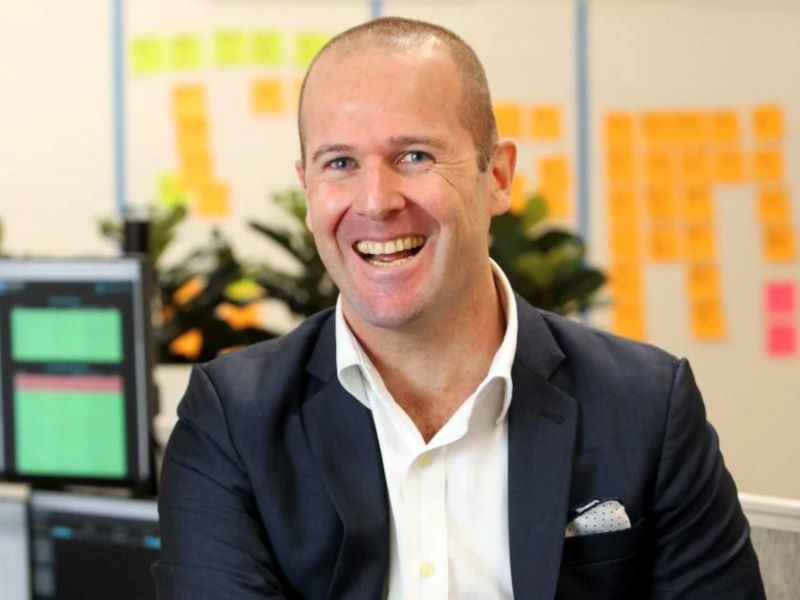An Australian healthtech company has its sights set on the digital infrastructure behind the multitrillion-dollar healthcare market after nearly a decade building out a digital platform that began as a student’s thesis.
The company, Big Picture Medical, needed to go offshore to finance and prove the platform but says Australian government support to commercialise it was “instrumental” because it plugged the gaps in local capital markets and validated its technology.

Big Picture Medical’s ultimate plan is to become the “operating system for healthcare”, its founder and chief executive Dr Tom McKinnon tells InnovationAus.
Like an operating system, the Big Picture platform provides the infrastructure, for existing care providers and technologies. Dr McKinnon acknowledges this is a massive challenge to deploy widely but believes it will bring down costs, improve patient outcomes and open new care models.
Dr McKinnon said the company is very deliberately taking its time and keeping a low profile, wary of a healthtech industry that has at times overpromised and underdelivered, and the high stakes.
“We’ve been at this for seven years. There’s no such thing as a minimum viable product in healthtech,” he said.
“We’ve had the luxury of the time and the funding to deconstruct healthcare and then reconstruct it at its basic data units, and then built the platform on top of that.”
The founder said the data confirmed what he had witnessed firsthand as a practising doctor before founding the company; healthcare journeys are increasingly disjointed and patient service trails the otherwise world-class healthcare provided in Australia and other developed countries.
Dr McKinnon said this is largely down to the way care is increasingly being delivered by multiple carers, nurses, doctors, specialists and institutions, often with little visibility or communication with each other.
“The patient journey has organically changed but we haven’t got an underlying system that ties things together to allow collaborative and distributed care … You get pushed from pillar to post as a patient, and then each time the patient goes to that new point of patient care they essentially start again.”
Big Picture Medical claims it can provide the “digital pathways” through the healthcare system to connect patients with various providers that would allow more “distributed, collaborative and intelligent care”.
The company, with around 50 staff across its Sydney and London offices, has already landed deals with medical industry giants Johnson & Johnson and Medicon, and University Hospitals Birmingham, one of the largest teaching hospital trusts in England.
Dr McKinnon said for a hospital customer, such as University Hospitals Birmingham, the platform is helping to risk stratify patients more accurately by connecting clinicians with patient care data, applications and algorithms.
This approach opens earlier patient discharge and also creates an opportunity for new care models like clinicians monitoring patients at home through collaboration with community nurses, he said.
“You’re able to intervene earlier and stop the patients coming back into the hospital system. So not only do you get them out of the hospital system earlier, you actually stop them from coming back,” Dr McKinnon said.
“So it’s democratising specialist knowledge and pushing the care towards the patient, where it can be done safely.”
Arising from Dr McKinnon’s 2007 thesis on more holistic patient care, Big Picture Medical was founded in 2014. Initially named Big Picture Vision, the startup focused on eye screening, using the platform to connect specialists and their eye care equipment, regardless of manufacturer, with patient data, software applications and other health professionals.
It was a narrow use case compared to the industry-wide potential now touted by Big Picture Medical. But deliberately so to validate the technology, according to Dr McKinnon, who said the larger platform was always the company’s plan.
“We took a very clear strategy from day one and said, ‘We’re going to choose one area of healthcare to start in first to validate the service.’
“All of the work that we’ve done over the last seven years has been under the hood in order to create a scalable platform for any use case,” Dr McKinnon said.
A federal accelerating commercialisation grant of $1 million in early 2017 helped validate the technology and support a connection with the UK experts.
The competitive grant provided capital to help plug gaps in the local venture capital market, sent a message to investors, and supported the move overseas.
“It was looked upon, naturally, very favourably from the investors. It helps bolster the balance sheet … and it was instrumental in helping us drive forward faster. It was great,” Dr McKinnon told InnovationAus.
Working with the UK experts validated the product and attracted inbound customers, one of which became an investor, he said.
With “beefy” long-term contracts signed and the core platform now built, Big Picture Medical has turned its sights to expanding into many more use cases across the healthcare industry, Dr McKinnon said.
He concedes the fragmented healthcare industry with differing technology maturity levels will present challenges, but they are ones the founder says are worth solving.
“It has its challenges, there’s no question about that. But the end game is so big for patients and clinicians and researchers that we think it’s worth it.”
Do you know more? Contact James Riley via Email.

